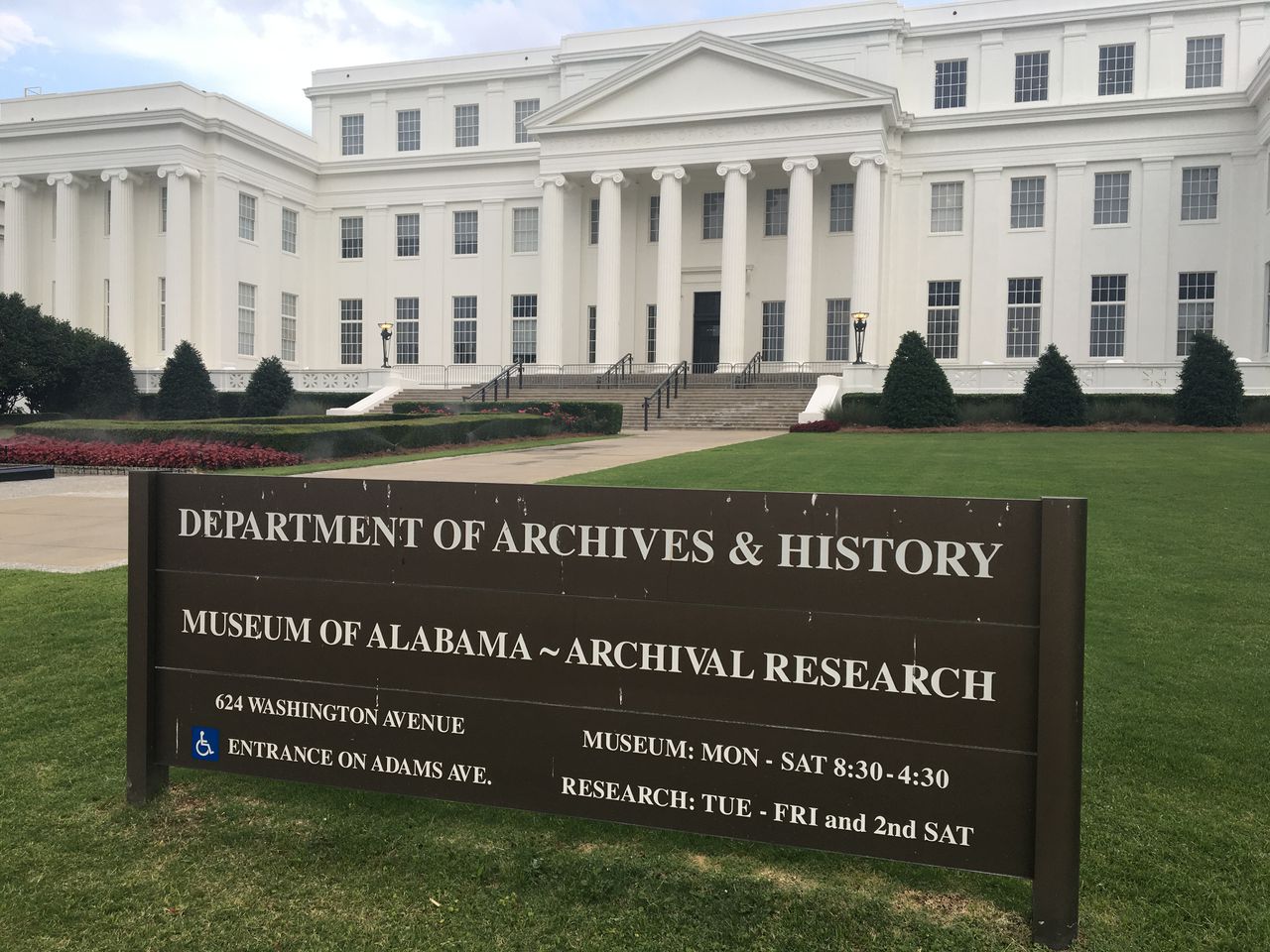Bills would take $5 million from archives after LGBTQ presentation
Two Alabama lawmakers have introduced bills to take $5 million away from the Alabama Department of Archives and History after it hosted a one-hour lecture on LGBTQ history last month.
Sen. Chris Elliott, a Republican from Josephine in Baldwin County, had said two weeks ago he planned to introduce the bill to send a message to the agency because he did not think the lecture topic on LGBTQ history was appropriate for the state department.
Archives and History responded last week by releasing a letter to lawmakers explaining the program and how it fit the agency’s mission. (You can see the letter at the end of this article.)
Earlier this year, the Legislature allocated $5 million to Archives and History as one-time support for museum upgrades and property purchases. The money was part of a bill $2.8 billion spending bill.
Elliott’s bill would take the $5 million from Archives and History and send it to the University of South Alabama’s Stokes School of Marine and Environmental Sciences for facilities, renovations, and research equipment.
Rep. Ernie Yarbrough, a Republican from Trinity in Morgan County, introduced a similar bill. It would send the $5 million to the Alabama Department of Human Resources to assist residents for costs associated with in-state adoptions.
Elliott and Yarbrough introduced their bills for the special session that started on Monday. Gov. Kay Ivey called the special session for lawmakers to redraw Alabama’s congressional districts after the U.S. Supreme Court ruled the current map likely violates the Voting Rights Act.
Elliott’s bill and and Yarbrough’s bill would need a two-thirds vote to pass because they are on a topic not included in the governor’s call for the special session.
Senate President Pro Tem Greg Reed, R-Jasper, was asked today about the chances for the bills to receive consideration during the special session. Reed said redistricting would be the main focus but did not rule out the archives funding bill.
“I think that is a topic that has been of significant concern,” Reed said. “I think you’ve got members that feel like the Department of Archives were a little outside their scope in some of the things that they’ve done.”
Last week, Archives and History released a letter from Director Steve Murray to legislators in response to criticism of the program, called “Invisible No More: Alabama’s LGBTQ History,” which was presented on June 15 as part of the Food For Thought series. Archives and History has held the monthly noontime lecture series for more than 30 years.
Murray wrote that the 2023 Food for Thought Series was planned beginning in the summer of 2022 and the schedule had been available and publicized since January. The only direct costs, Murray wrote, were a stipend for the speaker and mileage reimbursement, paid for by a grant from the Alabama Humanities Alliance.
Maigen Sullivan, co-founder and director of research and development for the Invisible Histories Project, was the speaker at the lecture. The Invisible Histories Project is a nonprofit research organization that works to preserve and teach LGBTQ history in the South.
The program was appropriate for the mission of Archives and History, Murray told lawmakers in the letter.
“The lecture highlighted the contributions of a few LGBTQ Alabamians in their chosen pursuits and examined the early histories of LGBTQ organizations in Alabama through the records created by groups in Auburn, Tuscaloosa, and Birmingham starting in the early 1970s,” Murray wrote. “It examined primary source documents to find what they reveal about the interests and motivations of groups that were active decades ago, and it discussed the limitations of historical evidence for understanding the lives of people in the past. This approach used basic tools of historical inquiry that can be applied to any topic, and which are routinely applied in Food for Thought presentations.”
In Murray’s letter, he also outlined how Archives and History plans to use the $5 million for improvements and new exhibits at the Museum of Alabama. That includes the redesign of the Native American content, creation of a military gallery, the development of a new children’s gallery, and updates to the Alabama Voices gallery.
The agency also plans to use part of the $5 million to secure a site for a facility to house and preserve its growing collections, Murray wrote, as well as for digitization of records and management of digital records.
